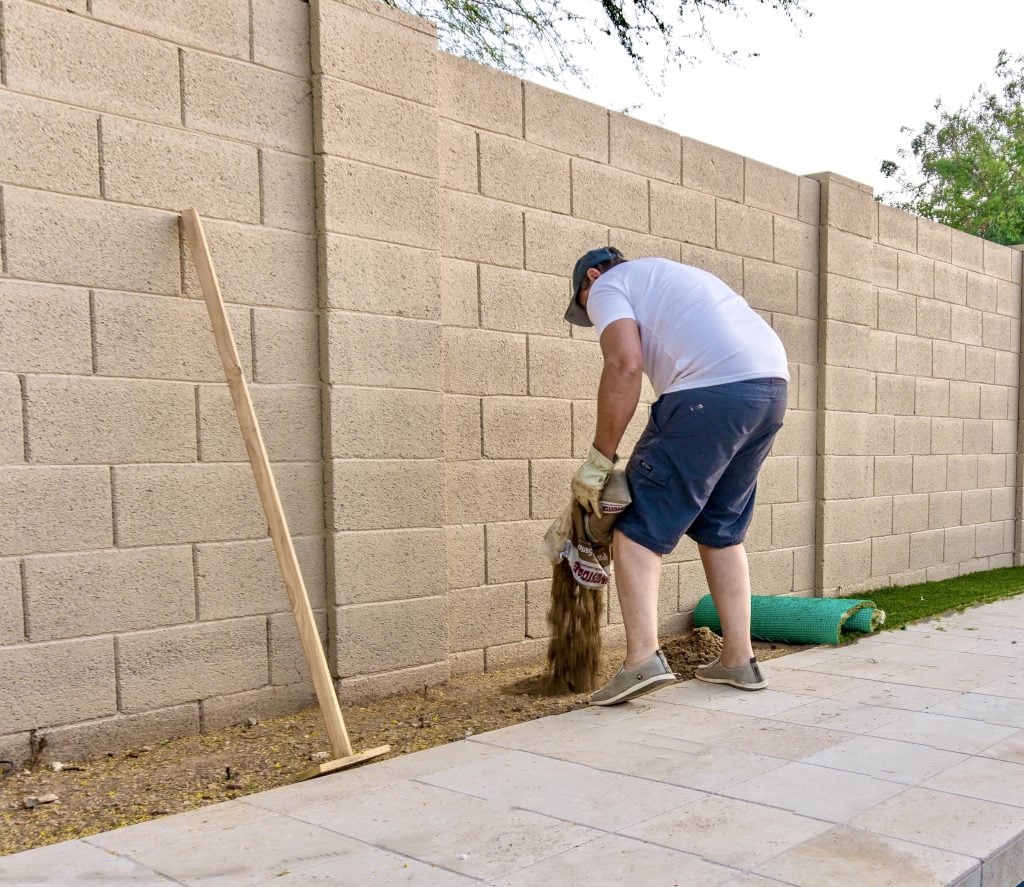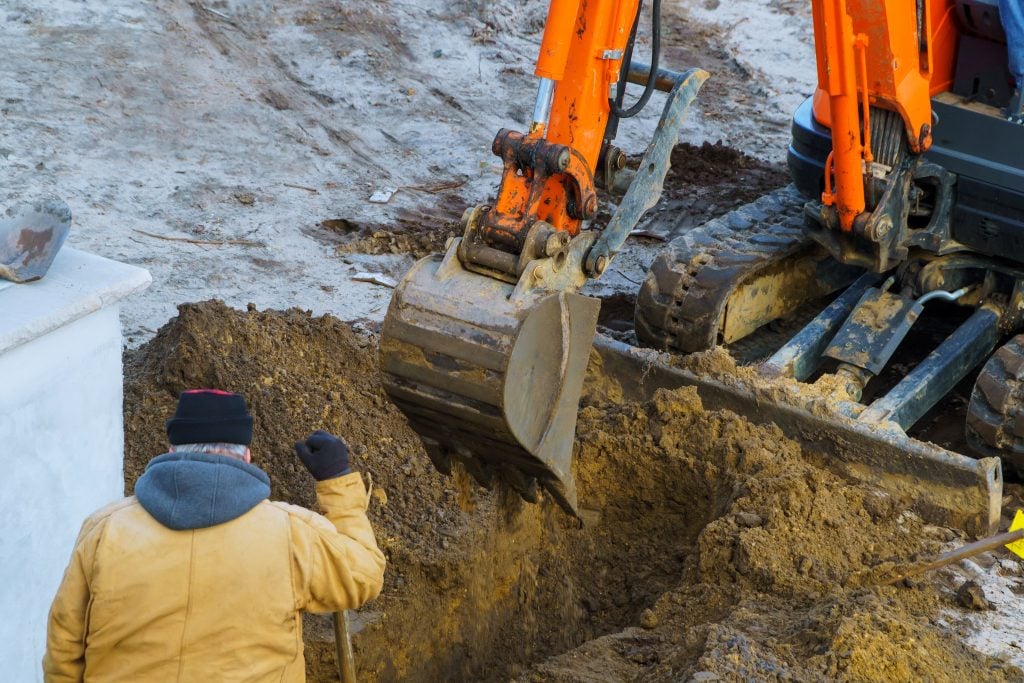

Have you ever wondered about party walls and why you need a party wall agreement in the UK? Are you aware that the Party Wall Act 1996 was established to prevent disputes between neighbours regarding shared walls?
This Act outlines the rights and responsibilities of property owners when carrying out building work that affects a party wall.
In today’s ever-evolving construction world, regulations are constantly being amended or newly created to meet modern needs.
Unless you are well-versed in this field, you might unknowingly break the law, leading to avoidable fines and penalties.
However, there is good news.
When it comes to party walls and drafting party wall agreements, there are experts at YOOP Architects who are always available and happy to assist you.
In this article, we will cover everything homeowners need to know about party wall agreements. We will explain:
- What are party walls? Understanding the definition and importance of party walls.
- Benefits of party wall agreements: Discover how these agreements can prevent disputes and ensure smooth construction projects.
- The role of experts: Learn how professionals can simplify the entire process, making it stress-free for you.
A party wall agreement is crucial if your extension involves building or digging foundations within 3 metres of a party (shared) wall or other foundations. Without such an agreement, you risk legal issues that can halt your project.

Examples of renovation and extension projects that will likely require a party wall agreement include:
- Building a loft conversion: If your loft conversion involves raising the height of a shared wall or altering its structure, an agreement is necessary.
- Erecting a rear extension: When extending your property to the rear, particularly if it involves new foundations close to a neighbour’s wall, you need a party wall agreement.
- Excavating for a basement conversion: Digging beneath your property near a shared wall requires an agreement to ensure structural safety.
- Adding a conservatory: If your new conservatory is within 3 metres of your neighbour’s foundations, a party wall agreement is essential.
A Party Wall Award (Agreement) means that your neighbours have given consent to the work being carried out.
This agreement not only ensures legal compliance but also protects both you and your neighbour if anything goes wrong during the construction.
By having a Party Wall Award, you can:
- Avoid disputes: Clear agreements prevent misunderstandings and conflicts.
- Ensure safety: Proper agreements safeguard structural integrity.
- Protect relationships: Maintaining good neighbourly relations is key in any community.
Thankfully, experts at YOOP Architects are well-versed in handling these agreements, ensuring that all legal and structural requirements are met. They will guide you through the process, making it as seamless as possible.
Let’s dive in and explore the essential information you need to navigate party wall agreements successfully.
Whether you are planning a renovation or just curious, this guide will provide valuable insights into the world of party walls.
Let’s Take a Closer Look: What are Party Walls?
Definition and Examples of Party Walls
Party walls are shared structures that separate buildings or properties belonging to different owners.
Typically, they stand on the boundary line between two pieces of land. In the UK, understanding the concept of party walls is crucial, especially for property owners planning construction or renovation projects.
Party walls can include:
- Terraced or semi-detached houses often share vertical party walls that divide the properties, ensuring structural separation while maintaining a common boundary.
- Garden walls positioned along property lines and jointly owned by adjacent landowners also fall under party wall regulations, ensuring mutual responsibility and maintenance.
- Within buildings, walls separating individual flats or units are party walls, ensuring privacy and structural integrity between different living spaces.
- Boundary walls that demarcate property lines, although not part of a building structure, are jointly owned and maintained under party wall agreements, ensuring clarity and shared responsibility.
- Load-bearing walls, essential for supporting the structure’s weight, often traverse property boundaries, necessitating careful consideration and mutual agreement under the Party Wall Act 1996.
This legislation governs these various types of party walls, providing a clear legal framework to prevent disputes and ensure proper maintenance and construction practices between neighbouring properties in the UK.
Examples of work that might involve party walls include:

- Building a loft conversion: Raising the height of a shared wall to extend the living space.
- Excavating near a shared wall: Digging foundations close to a neighbouring property, which could impact the stability of the shared wall.
- Demolishing and rebuilding a shared wall: Significant alterations that impact the structure, requiring careful management to avoid disputes.
- Installing damp proofing: Adding damp proof courses to a shared wall to prevent moisture ingress, which can affect both properties.
- Underpinning: Strengthening the foundations of a party wall, especially if one property is experiencing subsidence.
- Inserting steel beams: During major renovations, inserting steel beams into a party wall for support.
Understanding these examples helps clarify the importance of party walls in maintaining good neighbourly relations and ensuring structural safety.
Importance of Party Walls in Property Boundaries
Party walls play a significant role in property boundaries, serving multiple important functions. They not only separate properties but also contribute to the structural integrity of adjoining buildings.
In the UK, respecting and maintaining these walls is essential for peaceful co-existence with neighbours.
Firstly, party walls:
- Define property lines: Clearly marking the boundary between two properties.
- Support structures: Providing mutual support to the buildings on either side, which is crucial for stability.
Secondly, they help in:
- Preventing disputes: By clearly defining the boundaries, party walls minimise potential conflicts over property lines.
- Facilitating construction projects: When work is planned that affects a party wall, the Party Wall Act 1996 requires neighbours to agree on the work being carried out. This ensures that all parties are informed and any concerns are addressed beforehand.
Lastly, party walls:
- Promote safety: Proper maintenance and agreements ensure that structural changes do not compromise the safety of either property.
- Protect relationships: Maintaining good relations with neighbours is crucial, and respecting party walls helps achieve this.
The Party Wall Act 1996
The Party Wall Act 1996 was introduced to address the growing need for a clear legal framework governing party walls and other shared structures in England and Wales.
Before the Act, disputes between neighbours over party walls were common, often leading to lengthy and costly legal battles.
The Act provides a structured process to resolve such disputes, ensuring that all parties are treated fairly and construction projects proceed smoothly.
The primary purpose of the Act is to:
- Prevent disputes: By clearly outlining the rights and responsibilities of property owners, the Act helps prevent conflicts before they arise.
- Protect property: Ensuring that any work on or near a party wall is carried out safely, protecting the structural integrity of both properties.
- Promote communication: Requiring property owners to inform and obtain consent from their neighbours before commencing work, fostering good neighbourly relations.
The Act applies to various types of work, including:
- Building new walls: Along the boundary line.
- Altering existing walls: Such as raising or thickening a party wall.
- Excavating near a neighbouring property: To protect against potential damage.
Key Provisions and Responsibilities for Property Owners

The Party Wall Act 1996 sets out several key provisions and responsibilities for property owners to ensure that work affecting a party wall is managed properly.
By following these provisions, property owners can avoid legal issues and maintain good relationships with their neighbours.
Key provisions include:
- Notice requirement
Property owners must give written notice to their neighbours at least two months before starting any work on a party wall. This notice should include detailed plans and descriptions of the proposed work.
- Consent and dissent
Neighbours have 14 days to respond. If they consent, the work can proceed. If they dissent or do not respond, a party wall surveyor must be appointed to resolve the issue.
- Surveyor appointment
In the case of a dispute, both parties can agree on a single surveyor, or each party can appoint their own.
The surveyors will then draw up a Party Wall Award outlining the work to be done and any necessary precautions.
Responsibilities for property owners include:
- Minimising damage: Taking all necessary steps to prevent damage to the neighbouring property.
- Repairing damage: Making good any damage caused by the work, ensuring that the neighbour’s property is restored to its original condition.
- Allowing access: Permitting surveyors and contractors to access the property to carry out necessary inspections and work.
The Key Steps to a Stress-Free Party Wall Agreement
- Serve Party Wall Notices
Before commencing work, you, as the building owner, need to serve a party wall notice to your adjoining neighbors. These notices outline the planned work and your intention to invoke the Party Wall Act.
- Appoint Party Wall Surveyors (Optional)
While not mandatory, appointing party wall surveyors can significantly streamline the process. Surveyors act on behalf of both parties, ensuring a fair and professional assessment of the project’s potential impact.
- Negotiation and Agreement
Once notices are served, there’s a designated timeframe for negotiation between you and your neighbor(s).
The goal is to reach a mutually agreeable party wall agreement outlining the scope of work, access rights, and potential compensation for any damage caused during construction.
- The Award (if Surveyors Appointed)
If an agreement can’t be reached within the designated timeframe, the appointed surveyors will issue a legally binding “award” outlining the terms of the agreement.
Tips for Smooth Communication with Neighbours

Effective communication is key to a stress-free party wall agreement process. To foster smooth communication with neighbours, consider the following tips:
- Initiate early conversations
Discuss your plans with your neighbours well in advance. This helps to build trust and allows time for them to express any concerns.
- Be transparent
Share detailed information about your project, including timelines, the scope of work, and potential impacts on their property.
- Listen actively
Pay attention to your neighbour’s concerns and address them promptly. Showing empathy and understanding can go a long way in maintaining good relations.
- Provide written updates
Keep your neighbours informed throughout the process with regular written updates. This ensures they are always aware of progress and any changes.
- Seek professional advice
If communication breaks down, consider involving a neutral third party, such as a surveyor, to mediate discussions.
By following these tips, you can foster a cooperative atmosphere and reduce the likelihood of disputes.
Strategies for Resolving Disputes Amicably
Despite best efforts, disputes can arise during the party wall agreement process. To resolve these disputes amicably, consider the following strategies:
- Mediation: Involve a neutral mediator who can facilitate discussions and help both parties reach a mutually acceptable solution.
- Seek compromise: Be willing to make reasonable concessions to address your neighbour’s concerns. This might include adjusting the scope or timing of the work.
- Use the Party Wall Act: Follow the formal procedures outlined in the Party Wall Act 1996, including the appointment of surveyors to draw up a Party Wall Award.
- Document everything: Keep detailed records of all communications and agreements. This can be useful if the dispute escalates and legal action becomes necessary.
- Stay calm and professional: Maintain a respectful and professional tone throughout discussions. Avoid personal attacks or aggressive behaviour.
By employing these strategies, you can resolve disputes in a way that maintains good neighbourly relations and keeps your project on track.
Serving a Party Wall Notice & Reaching Agreement with Neighbours
To comply with the act, you can issue a Party Wall Agreement Notice yourself by writing to each neighbour. This notice will be affected and including your contact information, full details of the work to be carried out.
In this case access requirements and the proposed date of commencement. You can find letter templates and a Party Wall Act explanatory booklet (which may be useful to give to your neighbours so they know what they are agreeing to) at gov.uk; Preventing and resolving disputes in relation to party walls.
Your neighbour has 14 days to respond and give their consent, or request a Party Wall Settlement. Upon in it if they agree to the works in writing, you will not require a Party Wall Agreements. And this can save on the fees, which are typically £700 to £900 per neighbour.
If the neighbour refuses to give consent or fails to respond within 14 days. Then they are deemed to be ‘in dispute’.
Accordingly if you fail to reach an agreement. After words a surveyor will need to be appointed to arrange a Party Wall Award that will set out the details of the work.
Legal and Financial Implications
Potential Fines and Penalties for Non-Compliance
Non-compliance with the Party Wall Act can have serious legal and financial consequences.
Property owners who fail to follow the Act’s requirements may face legal action from their neighbours. Courts can issue injunctions to halt construction work until compliance is achieved.
Additionally, property owners might be liable for damages if their work causes harm to a neighbouring property.
Possible penalties include:
- Injunctions: Court orders to stop work immediately.
- Compensation claims: Neighbours can claim for any damage caused by non-compliant work.
- Legal fees: Both parties may incur significant legal costs.
To avoid these penalties, it is essential to adhere strictly to the Party Wall Act’s provisions, ensuring that all required notices are served and agreements are obtained.
Costs Associated with Obtaining a Party Wall Agreement
Obtaining a party wall agreement involves several costs, which property owners should budget for.
These costs can include:
- Surveyor fees: Hiring a party wall surveyor to assess the proposed work and prepare the Party Wall Award. If both parties appoint separate surveyors, costs may be higher.
- Legal fees: If legal advice or dispute resolution services are needed, these can add to the overall cost.
- Administrative expenses: Preparing and serving notices, as well as any additional documentation required.
While these costs can add up, they are generally lower than the potential costs of legal disputes or repairing damage caused by non-compliant work.
Financial Benefits of Avoiding Disputes and Delays
Adhering to the Party Wall Act and obtaining a proper agreement can offer significant financial benefits.
By preventing disputes, property owners can avoid costly legal battles and compensation claims.
Moreover, a clear agreement helps to:
- Minimise project delays: Ensuring all parties agree to the work schedule and scope can prevent hold-ups.
- Reduce unexpected costs: Proper planning and agreement reduce the risk of unforeseen expenses due to damage or additional work.
- Protect property value: Ensuring that work is carried out legally and safely maintains the value of both properties involved.
In conclusion, while obtaining a party wall agreement involves some costs, the financial benefits of avoiding disputes and delays make it a worthwhile investment for property owners.
FAQs about Party Wall Agreements
Who serves the Party Wall Notice?
The property owner undertaking the work (Building Owner) serves the Party Wall Notice to their affected neighbours (Adjoining Owners). This notice outlines the planned work and its potential impact.
- What information should be included in the Party Wall Notice?
The notice should specify the type of work planned, when it will start, and how it complies with the Party Wall Act. Clear details help neighbours understand the project’s scope and potential effects.
- How far in advance should I serve the Party Wall Notice?
It’s recommended to serve the Party Wall Notice at least two months before you intend to start the work. This allows time for your neighbours to respond and for any disputes to be resolved.
- Do I need my neighbour’s consent to start work?
Yes, you need your neighbour’s consent in the form of a Party Wall Agreement. If they don’t respond or dissent, a dispute is considered to have arisen, and you’ll need to appoint a Party Wall Surveyor.
- What happens if my neighbour dissents to the Party Wall Notice?
If your neighbour dissents, you’ll need to appoint a Party Wall Surveyor or agree on a single surveyor to prepare a Party Wall Award. This document outlines how the work will proceed while protecting both parties’ interests.
Who pays for the Party Wall Surveyor’s fees?
Generally, the Building Owner who initiated the work pays for the Party Wall Surveyor’s fees. This ensures impartiality and fairness in the resolution process.
- Can I undertake emergency works without serving a Party Wall Notice?
Yes, in emergencies like urgent repairs to prevent immediate danger or damage. However, you must still inform your neighbour promptly and follow up with a formal notice as soon as possible.
- What are my rights as a Building Owner under the Party Wall Act?
The Act grants you the right to access your neighbour’s property (with their consent) to carry out necessary works related to the party wall. It also ensures you can safeguard your property’s structural integrity.
- How long is a Party Wall Agreement valid?
A Party Wall Agreement, documented in a Party Wall Award, remains in force indefinitely until the works specified are completed or the agreement is terminated by mutual consent.
- Can a Party Wall Agreement be appealed?
Yes, either party can appeal a Party Wall Award within 14 days if they believe it contains errors or overlooks important considerations. The appeal process involves seeking resolution through the county court.
Contact us for professional assistance and advice.

